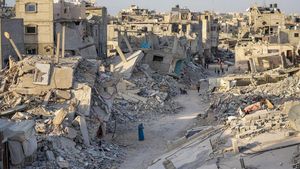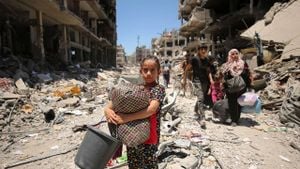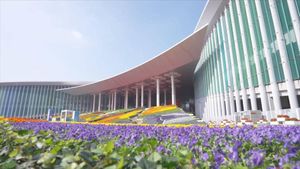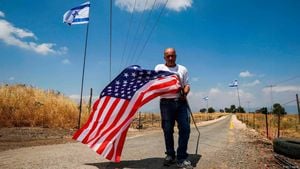The political and security situation in the Democratic Republic of Congo (DRC) is growing increasingly tense, posing significant challenges for its leadership and citizens alike. Recent developments, including thwarted coup attempts and controversial constitutional reforms, indicate deepening unrest and citizen distrust toward government actions.
President Felix Tshisekedi, who ascended to power under contentious circumstances back in 2018, now finds himself grappling with issues of governance and public confidence. His re-election earlier this year raised eyebrows, with many Congolese citizens believing his victory was heavily influenced by external forces rather than genuine democratic principles. This lack of trust has only been exacerbated by the government's renewed push to amend the constitution.
Of central concern is Tsisekedi's proposal, which many observers fear is aimed primarily at altering presidential term limits. Critics argue this move is not about necessary modernization of the constitution but rather about allowing Tshisekedi to extend his stay beyond the current term. Citizens have voiced their apprehensions, worrying this constitutional alteration threatens to plunge the nation closer to authoritarianism.
According to Michelle Gavin’s analysis for the Council on Foreign Relations, the suggested changes will likely deepen the existing mistrust. "Attempts to change the constitution of the Democratic Republic of Congo only exacerbate existing citizen distrust in government," Gavin notes, highlighting the widespread hesitance surrounding these proposed reforms.
The political climate became even more fraught following reports of armed attempts to overthrow the government. The DRC military recently announced they successfully foiled what appeared to be a violent coup attempt. Such actions signal the rising dissent and willingness of armed factions to challenge the current administration, underscoring the fragility of stability within the nation.
To compound these issues, Tshisekedi has pledged to ramp up security measures to safeguard the nation, declaring intentions to take "all actions necessary for the security and prosperity of the Democratic Republic of the Congo." Given the backdrop of violence and political upheaval, how effective these measures will be remains uncertain.
The conflicting narratives surrounding both the coup attempt and the proposed constitutional reforms have sparked intense debate. Former President Joseph Kabila’s vocal opposition to the suggested changes reflects broader anxieties about governance and control. Kabila's government, which ruled for over 18 years, had its share of controversies, and many critics see his opposition as contradiction-laden, yet he remains influential within political circles.
U.S. authorities have also expressed grave concerns over the situation. Recent statements from officials highlight worries about ceasefire violations connected to the military's engagements, casting doubt over the overall effectiveness of governance. Washington's apprehensions suggest the U.S. will be watching closely, viewing the DRC’s stability as integral not just to its own interests, but for regional security.
Public response to these political machinations is palpable. There’s growing skepticism toward the government, particularly surrounding the transparency of the recent elections and the true motivations behind constitutional revisions. Many citizens are demanding more accountability and actual reform rather than cosmetic changes aimed at consolidative power.
Observers say the DRC is at a crossroads, facing the risk of slipping back to darker times if meaningful dialogue and authentic governance do not emerge from the current turmoil. The military’s role amid political strife cannot be overstated. Their intervention during last week’s attempted coup testifies to the armed forces’ willingness to act decisively to maintain order, but it also raises concerns about the potential for greater militarization of the political process.
The DRC’s struggles are reflective of broader issues facing many African nations, where democratic processes are often tested by acts of violence, political ambition, and public dissatisfaction. With Tshisekedi at the helm, the hope for change is overshadowed by fears of repeating historical mistakes.
Looking forward, it remains to be seen whether the DRC can stabilize its political system and restore trust among its citizens. International observers remain vigilant, as their engagement could prove pivotal should the situation worsen. The coming months will likely provide additional clarity on whether the DRC can navigate this precarious period and how the government's approach to reform will impact the political discourse both locally and internationally.



